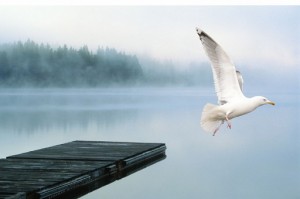There are now three days of Summer Music left, and the Chamber and Cecilian Choirs are prepped and ready for tomorrow night’s concert at St Mildred’s Church, Canterbury. For the Cecilian Choir, it will be the last time the Choir meets this year; for the Chamber Choir, it’s their penultimate performance, before a final flourish as part of the Music Society concert on Sunday afternoon.
 This is, for me, probably the lowest point in the year; the sense that, after a year’s committed rehearsing and music-making, the Choirs are reaching the final moment, after which they’ll never exist again. By which, of course, I don’t mean that the University Chamber Choir and Cecilian Choir won’t appear again – they’ll be re-incarnated next year, after a flourish of auditions, and take on a new year’s worth of concert commitments. But it will be the last time the Choirs exist in their present form, with their current members. Some of the students are graduating in July; some are taking a year abroad as part of their studies; some are only here for a year.
This is, for me, probably the lowest point in the year; the sense that, after a year’s committed rehearsing and music-making, the Choirs are reaching the final moment, after which they’ll never exist again. By which, of course, I don’t mean that the University Chamber Choir and Cecilian Choir won’t appear again – they’ll be re-incarnated next year, after a flourish of auditions, and take on a new year’s worth of concert commitments. But it will be the last time the Choirs exist in their present form, with their current members. Some of the students are graduating in July; some are taking a year abroad as part of their studies; some are only here for a year.
That’s the trouble, not just with the choirs here at the University, but with all the ensemble music-making that goes on; after a year of working together, developing repertoire and a unity of ensemble, meeting new musicians and putting on concerts together, all that effort evaporates. Music, especially music performance, is a transient phenomenon: it exists in the white-heat of public performance, and afterwards ceases to exist. (Recorded performance somehow never quite capture the magic, the essence, the vibrancy of the live performing experiece, especially if it’s you involved in the performing). That’s a part of its appeal, certainly; striving for that perfect moment at which performer, music, listener and performance-space combine in one unforgettable moment, transcending all of these factors and becoming something unique, unrepeatable. But it is something to regret too.
And it’s not just about the rehearsing; it’s a formative process, where developing the ensemble encompasses so much more than simply meeting once a week for note-bashing; it’s about the forging of friendships, the making of new friends, the sense of travelling together over the course of a year towards a shared outcome.
It’s a necessary part, I suppose, of working in a university: the ebb and flow as students arrive and graduate three or four years later. This time of the year is always something of a low; the rationale part of me remembers the heady furore of interviews and auditions that occurs in September and the exciting possibility afforded by all the different musical interests that arrive at the university at the start of each academic year. My job is to harness the potential for music-making at the start of each year and work to develop opportunities for it to be realised, for music-making to take place; a musical animateur, if you will. It’s an exciting job; but comes with the commensurate regret each summer as the year draws to a close and some of the musicians prepare to leave.
It’s been a terrific year for music at Kent, and for the Choirs in particular. Hail and farewell to all those who are graduating or leaving for a year, and thank you also to eveyone who has been a part of it; it’s been a privilege and a very great deal of laughter along the way. You’ll be missed.
